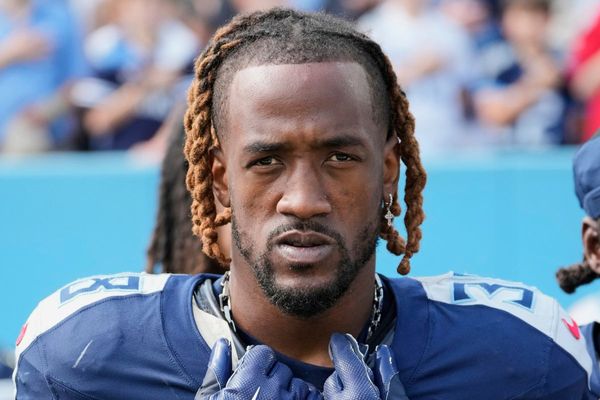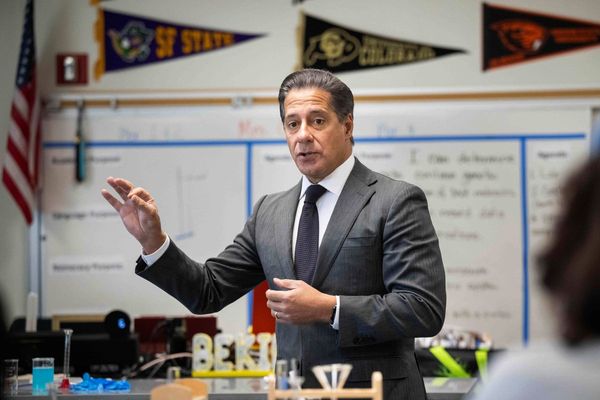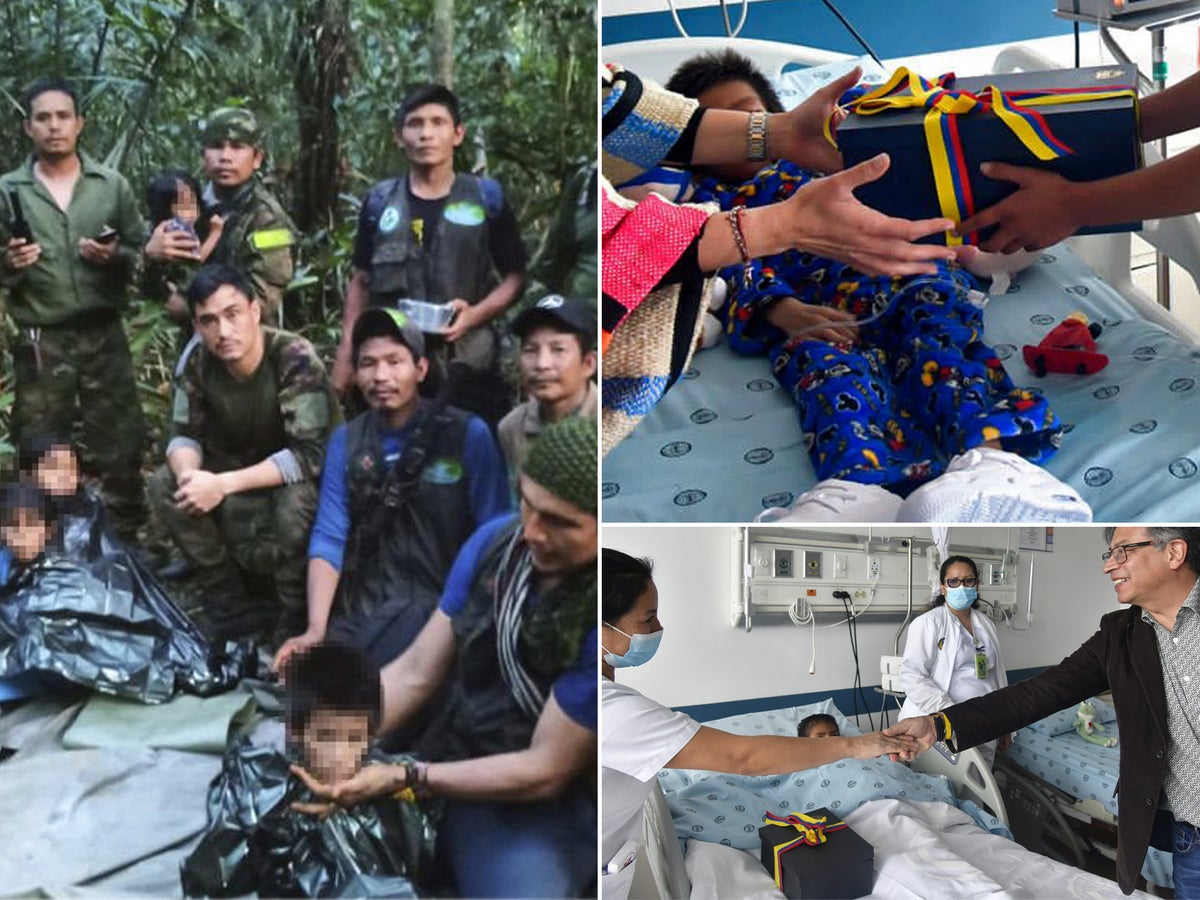
The grandfather of the four Colombian children rescued last week from the Amazon rainforest has revealed how her oldest granddaughter helped her siblings survive.
Magdalena Mucutuy and her children Lesly, 13, Soleiny, nine, Tien Noriel, four, and one-year-old Cristin were on board a light aircraft en route to San José Del Guaviare when it crashed on 1 May. Mucutuy, the pilot and another adult passenger were killed, but the children survived the accident and went on to spend 40 days stranded in the jungle.
Members of indigenous communities in the area and officers with the Colombian Army combed through the dense foliage until the children were finally rescued on 9 June.
Now, the minors’ grandfather Narciso Mucutuy has revealed the great lengths his oldest granddaughter went to in order to keep her younger sisters and brother alive.
Mr Mucutuy said the children spent the first four days of their odyssey at the site of the crash. But after running out of food and water they had brought on the plane, they decided to wander in the vast jungle, hoping to find a creek that would lead them to a river or a nearby village.
“The babies would cry because they were cold, they were tired, they were hungry,” Ms Mucutuy told Semana in Spanish during an exclusive interview on Tuesday. “Lesly ripped apart a piece of fabric from her mom’s clothes to cover her siblings and protect them from the cold. It is very, very sad.”
“The oldest girl was sitting on her mother’s legs and the other three children were behind them,” Mr Mucutuy said Lesly recalled to him. “After the crash, their bodies piled one on top of the other. Lesly was under her mom’s body and when she woke up, she saw her little sister’s leg moving and thought, ‘My sister is alive.’ She then pulled her body.”
A testament to her resilience and determination to keep herself and her siblings alive, Lesly rationed the content of a baby bottle to feed her two youngest siblings. When she lost the bottle, she made a makeshift feeder device out of plant leaves and filled it with water.
Lesly and Soleiny would also forage seeds as well as some fruits they found in the rainforest, which they were familiar with as members of the Huitoto indigenous group. Mr Mucutuy credited the children’s indigenous upbringing for their ability to survive more than a month in the unforgiving Colombian jungle.
“We teach our people, from the time they’re around five years old, to be out in the forest,” he told Semana. “We take them in canoes to the jungle. We teach them how to fish, which fruits are edible and which are not. We teach them to harvest, when produce is ready to eat ... all of that is part of their upbringing.”
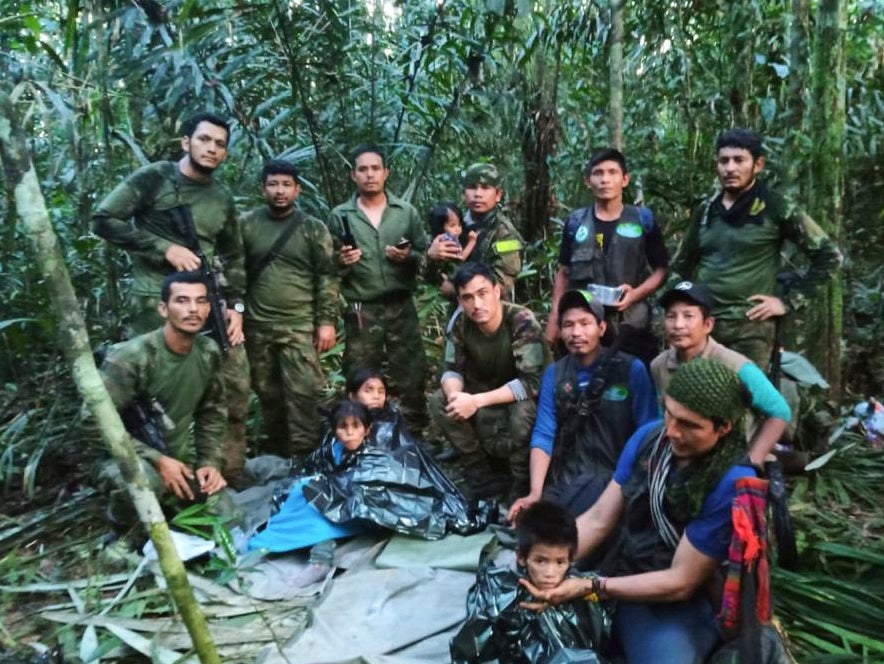
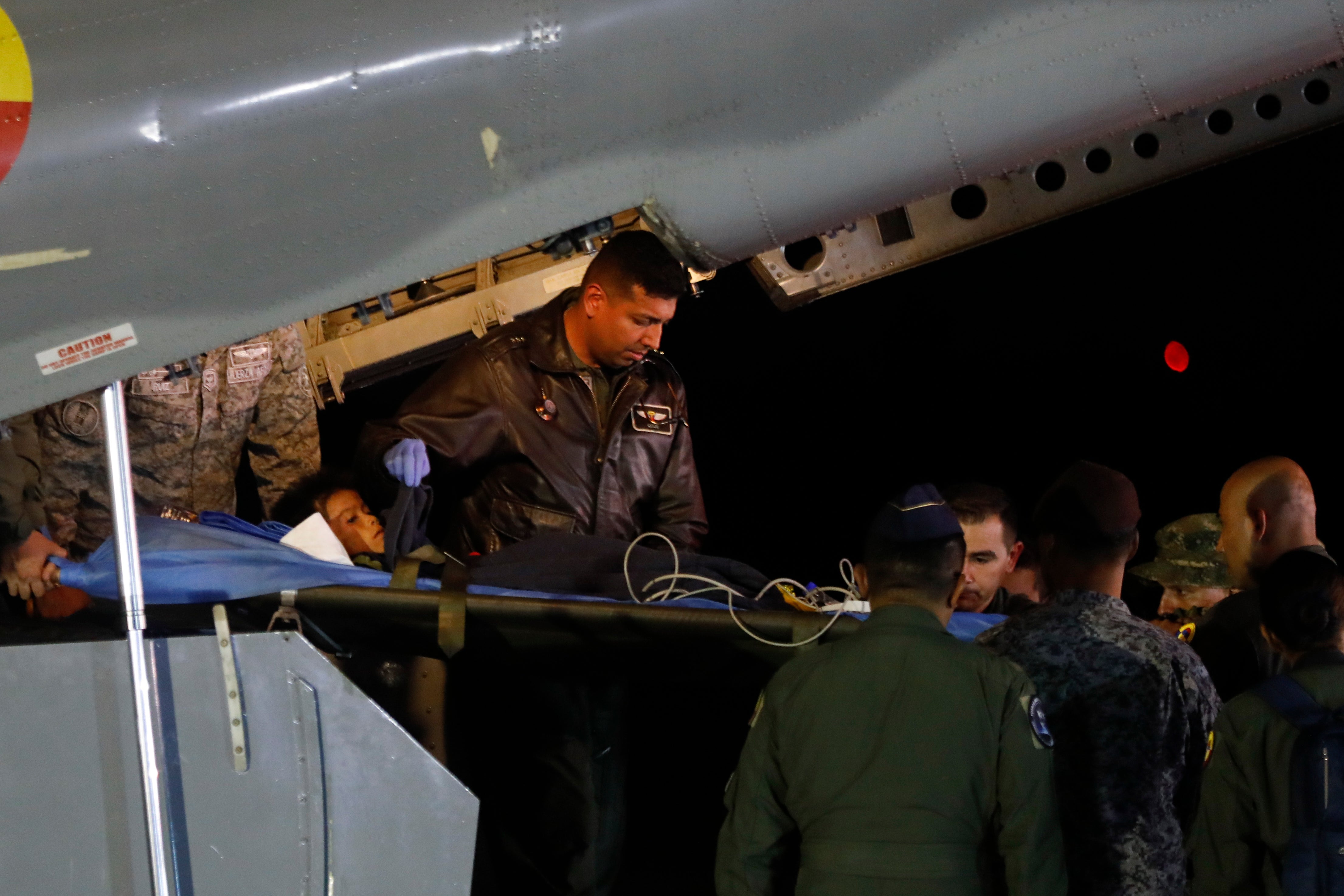
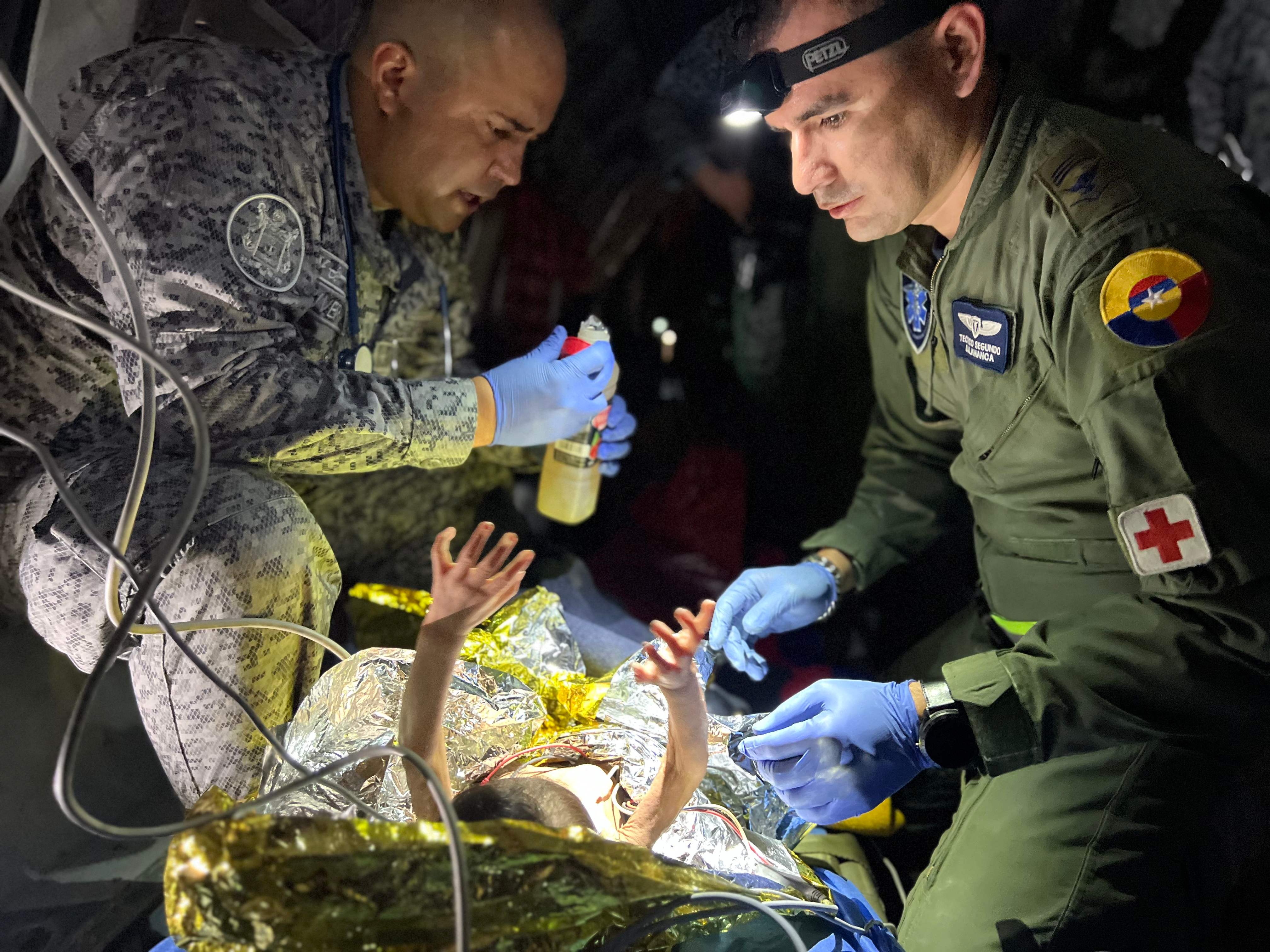
Mr Mucutuy said Lesly also made shelters with items she found in the jungle, adding that the children thankfully never encountered dangerous animals in their journey.
“Lesly said they never saw boas or tigers or bears. Nothing,” he noted. “She said she didn’t feel fear, she was in shock after the crash and could think about getting out of there with her siblings.”
The rescue last Friday came after a group of indigenous people who had been searching on foot for the children performed a traditional ritual. They then found the children and alerted members of the Colombian Army who rushed to their location and airlifted the children to a military hospital in Bogotá.
Mr Mucutuy said the children were about to give up just before help came their way.
“Lesly told me she didn’t have any strength left, she felt extremely weak,” Mr Mucutuy told Semana. “ She lost consciousness, she would have delirious episodes. They stayed there because they didn’t have any strength to keep going.”
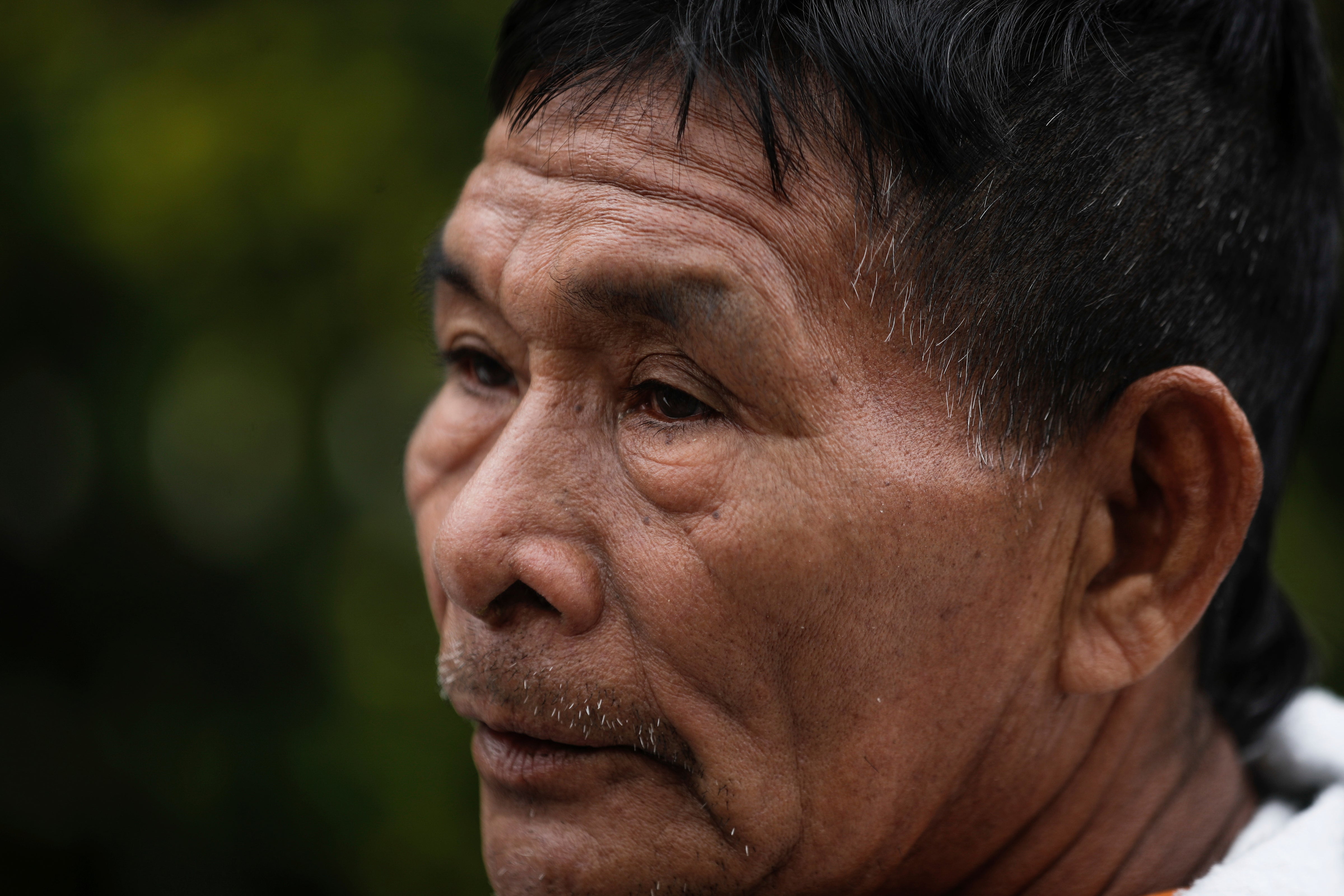
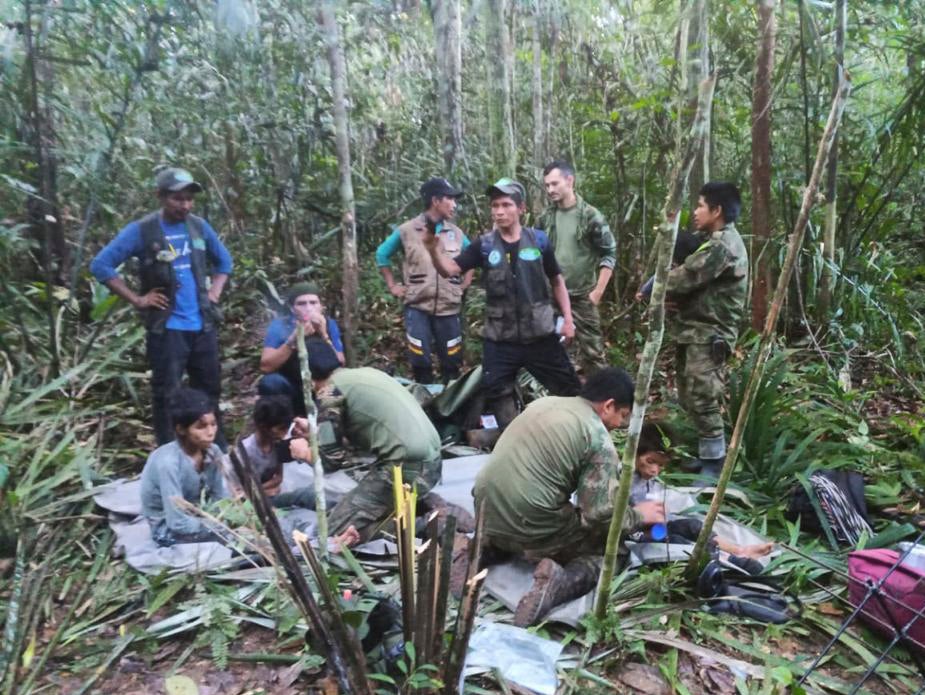
When the children were found, they initially became scared but were assured by indigenous leaders that they were going to be brought back with their family.
“The leaders told them, ‘Don’t be scared, we are your family. Your grandfather and grandmother have asked us to look for you and we have been doing so for a long time,” Mr Mucutuy told Semana. “They hugged the kids ... and the little boy, who is very clever, immediately said, ‘I want sausages, I want to eat something, I’m hungry.’”
“... When the army arrived ... one of the soldiers started feeding the baby with the bottle.”
Mr Mucutuy likened the children’s survival to the 40 days that Jesus spent in the desert without eating, saying he believes his grandchildren relied on their spirituality while they were missing.
Mr Mucutuy also said they saw Wilson, the K-9 who participated in the search and is now lost in the jungle, several times. Earlier this week, the Colombian Army shared a drawing of the now-missing four-legged hero made by the children from their hospital beds.
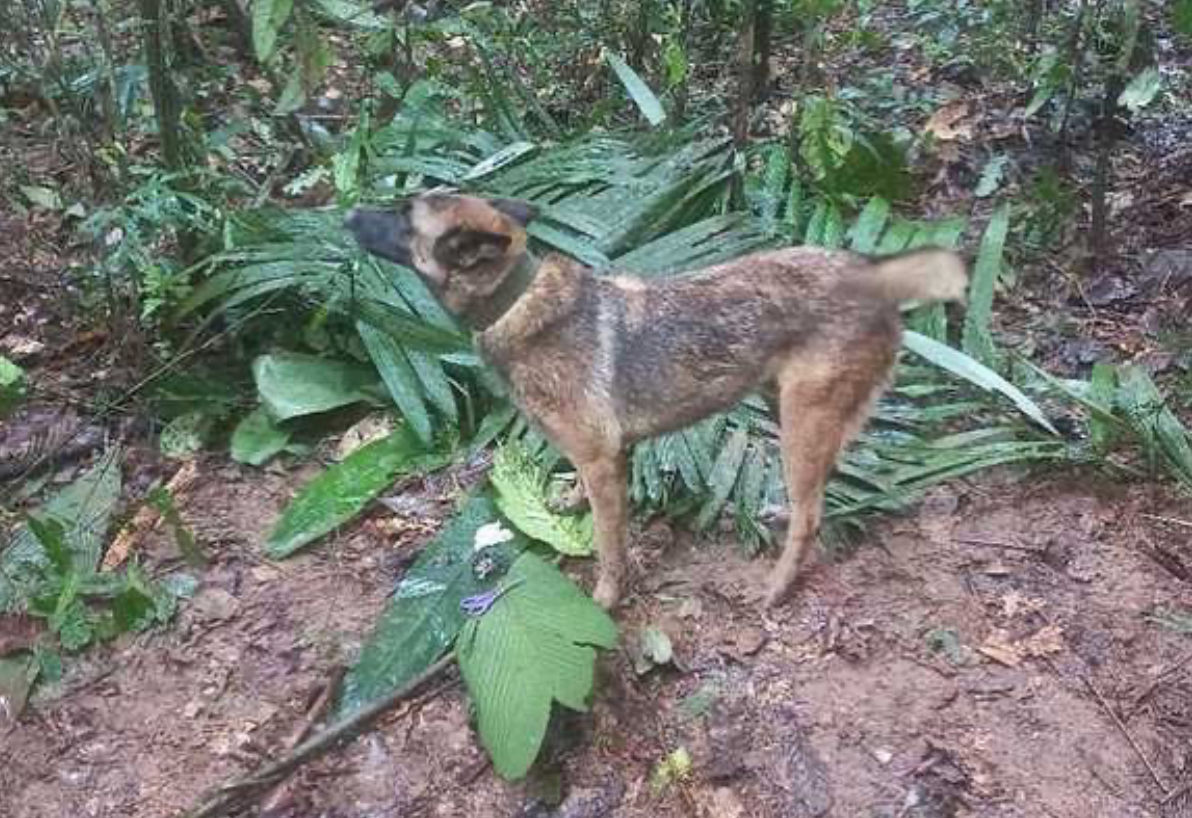

“Wilson would go look for them, find them, and go back to alert the army officers. But the children didn’t understand what he was doing,” Mr Mucutuy said. “The children say he will come back. According to our culture, a dog is never really lost, they always come back to us.”
The children are reportedly very dehydrated and malnourished but are receiving around-the-clock treatment and their condition is steadily improving. Their grandfather told Semana that doctors are working along with indigenous leaders to give the children care that is sensitive to their culture.
Traditional eating rituals have been held and the minors are starting to eat solid foods. They’re eating small portions as their bodies get used to larger quantities.
Mr Mucutuy and his wife are hoping they can eventually obtain custody of the four children. They plan to settle in the country’s capital to help their grandchildren as they reel from losing their mother and grapple with their new reality after their miracle survival.




